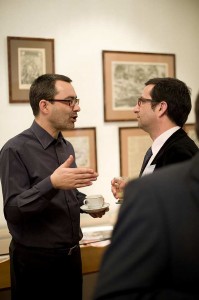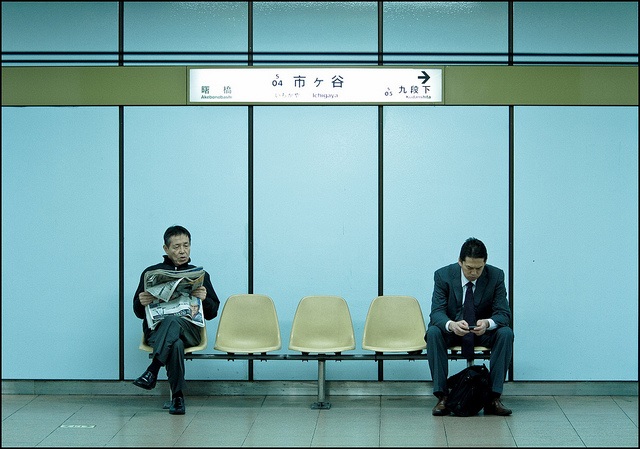Philip Meyer, author of The Vanishing Newspaper, and Alan Rusbridger, director of Guardian Media and News, open the second day of Journalism 2020 emphasizing the need to approach online journalism with a digital mindset.
Merely transposing a paper edition onto the Web site simply won’t work. With this in mind, Meyer highlights the importance of professionalizing online journalism. The United States offers online certification programs for high schools to help establish quality standards and to regulate online information, while sites like Factcheck.org and Snopes.com are pioneers in this area. Speaking of his experience at the Guardian, Alan Rusbridger advocates Jeff Jarvis’ fundamental concept of online journalism, “Cover what you do best, link to the rest,” and lists 10 principles of online journalism:
1. Encourage participation and welcome feedback
2. It is not a static “us” against “them” publication
3. Encourage others to start a debate, publish material or make suggestions.
4. Help create communities around common interests and themes
5. Open up to the Web and become a part of it
6. Bring together and supervise the work of others
7. Accept that journalists are not the only authoritative, expert or interesting voice
8. Take in, express and reflect diversity but also promote shared values
9 . Accept that publication can be the start of the journalistic process and not the end
10. Be forthright and open to challenges and improvements, including corrections, clarifications and further debate.
Rusbridger says that newspapers in 2020 will be “mutualized,” shared newspapers based on trust and participation in which the line dividing the journalist and reader is very fine, almost nonexistent.
At the end of the second day, Antoni Maria Piquè – consultant to key media companies in Latin America and associate professor at the International University of Catalunya’s School of Journalism – took the floor and wowed the crowd with his presentation on online journalism in South America. Who knew Craiglist’s main competitor is headquartered in Buenos Aires? OLX – a platform for free classifieds and small ads which operates in South America, Austria and Germany – registered a $2.8 million dollar turnover in 2009. Piquè went on to describe the sport newspaper Lance!, which is headquartered in Rio De Janeiro and produces three regional editions, multimedia radio, a sports TV platform on the Web and a monthly magazine. Print editions of Lance! had a circulation rate of 140,000 copies per day in 2009. Visits to the site: 8 million per day. It’s no surprise that – as Piqué says – no Lance! journalist would prefer to work exclusively for the paper edition. Concerning the future of journalism, Piqué is quite positive, although less confident with regard to the fate of print media. Printing and distribution processes represent between 70-80 percent of print costs, much too high to be sustainable. According to Piquè, who worked for 20 years as a journalist for print media, the future of journalism is online and whoever falls behind is destined for failure.
Tags: Alan Rusbridger, Antoni Maria Piquè, Digital Media, Factcheck.org, Guardian Media and News, Jeff Jarvis, Lance!, OLX, Online journalism, Philip Meyer, Snopes.com















































